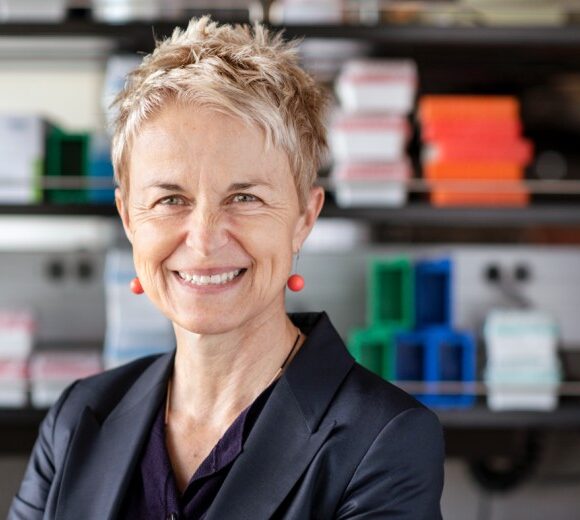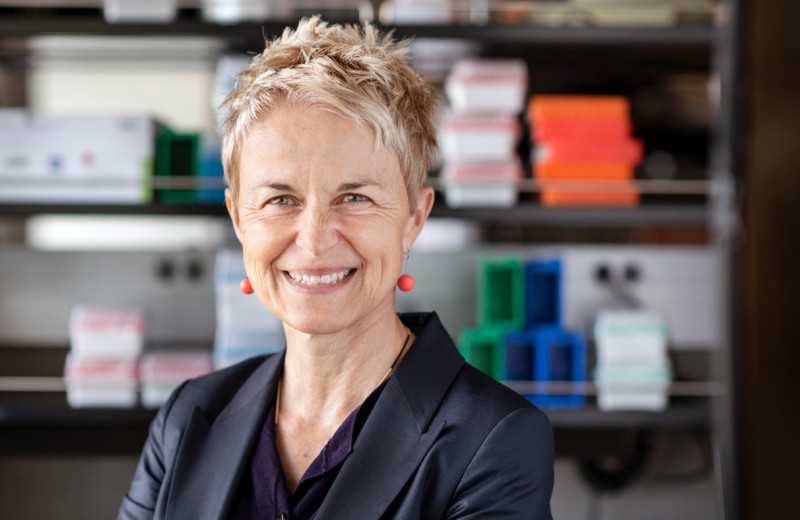Events
QB3 Webinar: Melanie Ott, Gladstone Institutes. “From Virus Infection to Postacute Sequelae: Correlates of Long-Covid in Mice”

Long-Covid remains a devastating disease with ~10% of people with SARS-CoV-2 infections developing symptoms. The causes of LC remain unclear with proposed hypotheses ranging from direct infection and lingering of the virus to autoimmune disease. We have previously shown that cardiomyocytes are uniquely susceptible to SARS-CoV-2 infection and will discuss follow-up studies in SARS-CoV-2 infected mice. We also find a previously defined biomarker for Long-Covid, the CXCR4 chemokine receptor over expressed on lung resident T cells, reproduced in mice and link it to behavioral abnormalities persisting weeks after the virus is cleared. Combined, these studies shed new light on two pressing symptoms in Long-Covid, cardiac sequelae and “brain fog”, and may enable development of much needed diagnostic and therapeutic modalities.
Register for the Livestream
About the Speaker

In Melanie Ott’s lab, the scientific goal is clear: We research the viruses of today to prepare for the viruses of tomorrow. Toward that end, she and her team are unraveling how viruses—including hepatitis C, HIV, SARS-CoV-2, and Zika—hijack human cells, and they are designing ways to thwart these pathogens.
A native of Germany, earned her medical degree in 1991 from the University of Frankfurt/Main. During her neurology residency in Frankfurt, she watched an overwhelming number of people with HIV die for lack of a treatment or cure. Seeking answers, Ott moved to the U.S. to study HIV in the laboratory and earned her PhD from the Elmezzi Graduate School of Molecular Medicine at Northwell Health. Following a five-year stint leading her own lab at the German Cancer Research Center, and working closely with virologist and Nobel laureate Harald zur Hausen, Ott returned to the U.S. in 2002 to join Gladstone Institutes.
Here, in addition to her laboratory investigations, Ott directs the global HOPE (HIV Obstruction by Programming Epigenetics) Collaboratory, which seeks to both silence and permanently remove HIV from the body. She also lends her scientific expertise to the council of the National Institute of Drug Abuse (NIDA) and to the FDA’s Cellular, Tissue, and Gene Therapies Advisory Committee. For InvisiShield Technologies Ltd, a company developing therapeutics to prevent respiratory infections, she chairs the scientific advisory board.
Always a proponent of opening laboratory doors to any student interested in science, Ott founded the PUMAS summer internship program at Gladstone, for which she has received much recognition.



